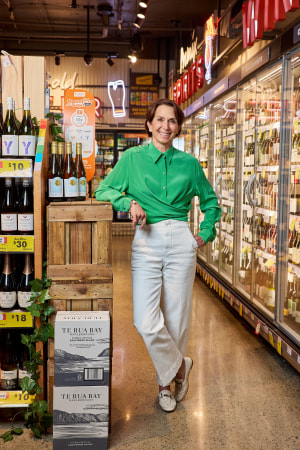The International Organisation of Aluminium Aerosol Container Manufacturers (Aerobal) has announced the winners of its World Aluminium Aerosol Can Awards, with a Turkish firm, Aryum, taking the top accolade, and a German company, Tubex, winning in the new sustainability category.
Aerobal secretary general Gregor Spengler said the World Aluminium Aerosol Can Award is well established as a reliable trend barometer for future developments in the international aerosol can market.
Turkish manufacturer Aryum took home the World Aluminium Aerosol Can Award 2020 for a can designed and produced for a client in Tunisia.
The client asked Aryum to develop a distinctive and appealing design for the 200ml cans for an exclusive deodorant line comprising four different fragrances.
A 360-degree embossing technique combined with an oriented printing technology is used to create the cans’ unique shape and look and gives them the desired unique character as soon as one sees them.
Not only does the 360-degree technology produce the all-round shape, it is also possible to achieve 360-degree printing of the can in an impressive quality. As a result, the cans for the Up deodorant spray for women sometimes appear in vibrant, powerful and almost exploding colours, and sometimes they appear elegant, with finely co-ordinated shades with filigree patterns and gradations.
The logo is located in an exposed position on the flatter surface of the can. There is perfect interaction between the 360-degree printing and the embossing technique and this creates the desired brand image. But the 360-degree technology goes further than merely positioning the brand in a uniquely visual way: shaping the can around its complete circumference also offers excellent protection against product counterfeiting and brand piracy.
For the first time this year, the international jury also chose a winner in a newly created category: sustainability.
Spengler said sustainability has long been a convincing argument for aluminium aerosol cans.
“We wanted to send out a clear signal to underscore this yet again, though, and we therefore created the new Sustainability category. Our industry is not resting on its laurels,” Spengler said.
“Even in difficult times like these, it is investing considerable resources, creativity, innovative strength and commitment in developing even more sustainable and future-oriented packaging solutions – often in close co-operation with brand owners.”
The first winner in the Aerobal competition’s new category was the aluminium aerosol can for the Rexona Recycled Refreshed 24-hour antiperspirant from Unilever. It was produced by the German manufacturer Tubex. At first glance, it looks like a conventional aluminium can, but it offers many innovative and forward-looking features to enhance sustainability.
The can is the result of optimisation of alloys. It was produced using a new, patented alloy and contains 25 per cent real post-consumer recyclate (PCR).
Thanks to the new alloy and a barely discernible modification of the can’s shape, the can is now 14 per cent lighter than its predecessor.
A powder coating is used to protect the inside of the can. In addition, only half of the can’s internal surface is lacquered. The use of powder coating offers ecological benefits: it avoids carbon dioxide when it is applied inside the can, and any overspray is reused.
Reducing the wall thickness, however, made the can more susceptible to denting during packaging and transport. That is why an innovative and fully automatic packaging technology, layer wide packaging, was specially developed for this new generation of cans.
The cans are now placed on pallets instead of being packed in bundles as was previously the case. Besides better protection of the cans, this new process also brings considerable economic and, above all, ecological benefits.
A pallet now accommodates 15 per cent more cans and a truck can carry 15 per cent more pallets. The storage space required is also reduced by 15 per cent. All in all, this is a perfectly sustainable concept that has been well thought out from start to finish.





